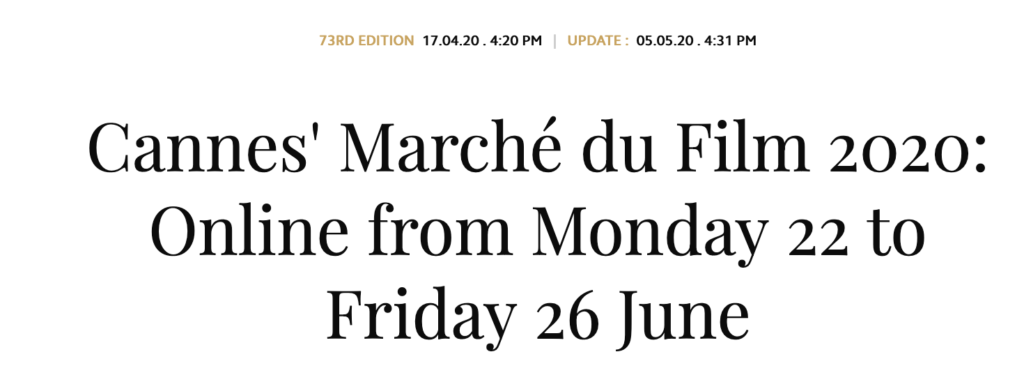THB #93: The Batman (no spoilers)
| March 6, 2022
Paul Schrader is a brilliant man. But… myopic.
Festivals have a narrow value beyond the experience to be had at the festivals. And every one of the major festivals has a different purpose that extends beyond those events.
Cannes is many festivals. There are two major competitions, a few other platforms, and then a major market event that is actually a private thing. Venice is a combination of showy premieres that come to the festival with U.S. distribution, for international marketing purposes, some high-quality premieres looking for worldwide distribution, and a bunch of international titles that will never get a wide audience in the U.S. Telluride is a combination of premiering the best of Cannes (that aren’t heading to TIFF or NYFF exclusively), being an Oscar platform for films with distribution, as well as high-art odds & ends with the very rare film that is seeking distribution there. And honestly, no one quite knows what NYFF is anymore, as it changed its stripes almost annually for the last decade. It went from having virtually no premieres to having big awards slots to being murky. Netflix pushed for a festival launch for Scorsese, so Scorsese did his very rare festival launch last year. But mostly, NYFF has been the place, in this regard, to avoid the heavy competition between awards movies at TIFF.
Schrader’s notion that the power and big spending of Netflix or Amazon could foster an event that would capture the public’s imagination in the way festivals do is not realistic. Not because it is impossible to find that audience, but because the purpose of festivals is not the same as the point of public release for movies, theatrically or only digitally.
Moreover, outside of the festival world, no one knows the festival heads and no one cares about film festival awards. This does not mean that festivals don’t have a place in the life cycle of indie films. But you’re talking about five percent of the films that experience that cause and effect.
If you have a title that you accept as less-than-commercial or unlikely to explode beyond its niche — not a judgment of quality at all, often the opposite — go ahead and play at a worldwide online festival. Just like rolling the dice at Cannes or Sundance, you may have an explosive moment and get money for your next movie. The Festival Dream is a crapshoot anyway… Take a different crapshoot.
But getting back to Schrader’s prayer. His idea is premised on a fantasy, that Netflix or Amazon is in the business of cultivating high art. Netflix may feel that taking a big $ hit to get an Oscar is a worthy bet. But paying festivals to curate arthouse movies? Too Smart To Handle.
Putting these films online doesn’t add the film-fest dynamic. It adds media to the mix of direct-to-distributor sales. And some popularity scale, based on how many people watch each film. It doesn’t put First Reformed in front of distributors with an audience.
That moment when a film is discovered — tracked for months leading to the “discovery”— at the first Sundance or Cannes cannot be recreated online. It is gloriously irrational, which is why so many overspend at fests.
Also, we already have a sampling of the impact this might have. Amazon Prime has had a handful of SXSW movies on their service for weeks. Has anyone watched?
Yes, Cannes and Venice and TIFF titles would have more profile going in. Two or three might emerge as media obsessions. But again… a crap shoot.
Since I started writing, Cannes announced that it will try an online market (Marche) in June to fill the void. [LINK]

The sale of online passes will begin soon. But the question will be what kind of access the media does and does not get to these films. I have attended Cannes with a press badge and a Marche badge. It allowed me to cram a lot of extra films onto my schedule. But I was also excluded from many screenings that were meant for buyers only. I suspect that will be the experience here. Some international films will take the opportunity to allow press to get access. But my guess is that any film with serious aspirations for a U.S. window will keep us at a distance.
I circle back to my fall festival suggestion… to create a digital festival circuit for media this year that allows the distributors to take all the advantage of the media that it would normally get and to still control the opportunities for their films in the unknown situation around how films will, or will not, be distributed this fall.
In building a digital plan for media, these festivals could build a digital plan for festival attendees. Yes, the films will be on the fence until close to the last minute. But I can imagine a TIFF that leans heavily into Canadian product and docs and foreign language that opens up for TIFF ticket buyers for 10 days, allowing them a smorgasbord of opportunity and generating enough revenue for TIFF to keep them afloat, while also fulfilling the desires of the distributors and filmmakers.
In other words, build SOMETHING. Start now.
But the panacea of Schrader’s notion… Too much… Too ambitious… and too much in love with the idea of festivals. It’s a love I share. But I also know that it is a very niche romance that only a few of us are blessed to embrace every year.

-30-
May 1, 2022

"Netflix, the great disrupter whose algorithms and direct-to-consumer platform have forced powerful media incumbents to rethink their economic models, now seems to need a big strategy change itself. It got me thinking about the simple idea that my film and TV production company Blumhouse is built on: If you give artists a lot of creative freedom and a little money upfront but a big stake in the movie’s or TV show’s commercial success, more often than not the result will be both commercial (the filmmakers are incentivized to make films that will resonate with audiences) and artistically interesting (creative freedom!). This approach has yielded movies as varied as Get Out (made for $4.5 million, with worldwide box office receipts of more than $250 million), Whiplash (made for $3.3 million, winner of three Academy Awards), The Invisible Man (made for $7 million, earned more than $140 million) and Paranormal Activity (made for $15,000, grossed more than $190 million).From the beginning, the most important strategy I used to persuade artists to work with me was to make radically transparent deals: We usually paid the artists (“participants” in Hollywood lingo) the absolute minimum allowable by union contracts upfront, with the promise of healthy bonuses based on actual box office results—instead of the opaque 'percentage points' that artists are usually offered. Anyone can see box office results immediately, so creators don’t quarrel with the payouts. In fact, when it comes time for an artist to collect a bonus based on box office receipts, I email a video clip of myself dropping the check off at FedEx to the recipient."
Jason Blum Sees Room For "Scrappier" Netflix
| April 30, 2022

"As a critic Gavin was entertaining, wry, questioning, sensitive, perceptive"
Critic-Filmmaker Gavin Millar Was 84; Films Include Cream In My Coffee, Dreamchild
April 29, 2022

| January 24, 2022
DP/30 Audio: Bombshell, Jay Roach
| December 13, 2019
DP/30 Audio: The Last Black Man in San Francisco, Jonathan Majors
| December 4, 2019
DP/30 Audio: The Mustang, Laure de Clermont-Tonnerre
| December 4, 2019
Say, we do festivals online this year, under some format or another…. what, new, will be available to show next year, with production currently shut down? Maybe, if production is down, the festivals should be, too.
I don’t think a year off from the Oscars would be bad either. Maybe, with their gap year, the Oscar publicists will find their missing scruples.